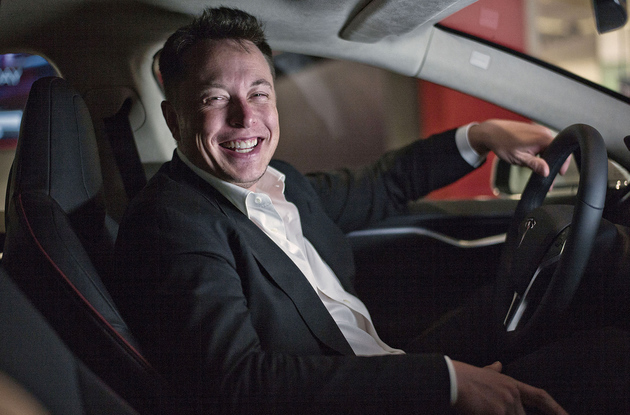
Photo/VCG
1. Elon Musk reveals progress on Model 2
Elon Musk said in a recent interview, "We are developing a low-cost, high-volume electric car. We have made considerable progress on this project, and I review the production line plan every week." This car is often referred to by analysts as Model 2. Musk also said that the production line is very different from any other car production line. The production technology level of this system is far ahead of any car factory in the world. The first production line is in the Gigafactory in Texas, and Mexico will be the second.
Commentary: Tesla's Model 2 plan demonstrates its innovation in manufacturing technology, which is expected to lead to higher production efficiency and lower costs in the electric vehicle industry.
2. Microsoft Copilot to use GPT-4 Turbo soon
Microsoft said that Copilot (formerly Bing chatbot) will use OpenAI's latest GPT-4 Turbo model in the coming weeks, and will quickly integrate image search that based on GPT-4's multimodal capabilities. Copilot has updated the DALL-E 3 model, allowing users to create higher-quality and more accurate images based on prompts.
Commentary: The GPT-4 Turbo upgrade of Microsoft Copilot foreshadows the deepening application of AI technology in the search and programming fields, which will accelerate the pace of innovation in the industry.
3. Novo Nordisk seeks to develop "obesity prevention drug"
Novo Nordisk Global CEO and President Zhou Fude said in a recent interview that the company has established a department focused on "prevention transformation" to use artificial intelligence and advanced analysis techniques to gain a deeper understanding of obesity. Zhou Fude said that experimental data can provide clues as to why some people are more likely to gain weight, and even may help the company develop the first obesity prevention drugs.
Commentary: Novo Nordisk's obesity prevention drug research reflects the company's use of AI technology to transform its medical strategy, and is expected to lead the way in the pharmaceutical industry.
4. Regulatory filing: Musk's xAI close to completing a $1 billion funding round
According to a filing with the U.S. Securities and Exchange Commission, Musk's xAI is in the process of raising up to $1 billion, of which $1.34 billion has already been completed. The note states that "for the pending sale portion, the issuer has entered into binding and enforceable agreements," which means that xAI is likely to have already completed its $10 billion funding target.
Commentary: The successful fundraising of Musk's xAI shows its strong appeal in the AI field, which could have a major impact on the AI market landscape.
5. NASA official: Next Starship test flight will demonstrate how ship can transfer cryogenic propellant in the air
A NASA official said that the third Starship test flight is expected to include a key technology demonstration: how the ship can transfer cryogenic propellant in the air, similar to the common aerial refueling of fighter jets. The NASA spokesperson stressed that plans in the space industry are subject to change, which is common practice.
Commentary: If the low-temperature propellant transfer technology of the Starship test flight is successful, it will be a milestone for future space missions.
6. Meta and IBM team up to create AI alliance to share technology and reduce risk
According to media reports, Meta and IBM are partnering with more than 40 companies and organizations to create an industry organization dedicated to open-source AI work, aimed at sharing technology and reducing risk. According to the statement released, the alliance will focus on the responsible development of AI technology, including security and security tools. The alliance will also seek to increase the number of open-source AI models, develop new hardware, and collaborate with academic researchers.
Commentary: The creation of an AI alliance by Meta and IBM aims to promote the open-source development of AI technology, which can help to reduce industry risk and promote technology sharing.
7. Nvidia plans to build a network of chip factories in Japan
Nvidia CEO Jensen Huang said that he will work with Japanese companies to build a network of semiconductor factories in Japan to meet the demand for AI-driven graphics chips.
Disclaimer: The content and data in this article are for reference only and do not constitute investment advice. Verify before using.


 川公网安备 51019002001991号
川公网安备 51019002001991号





